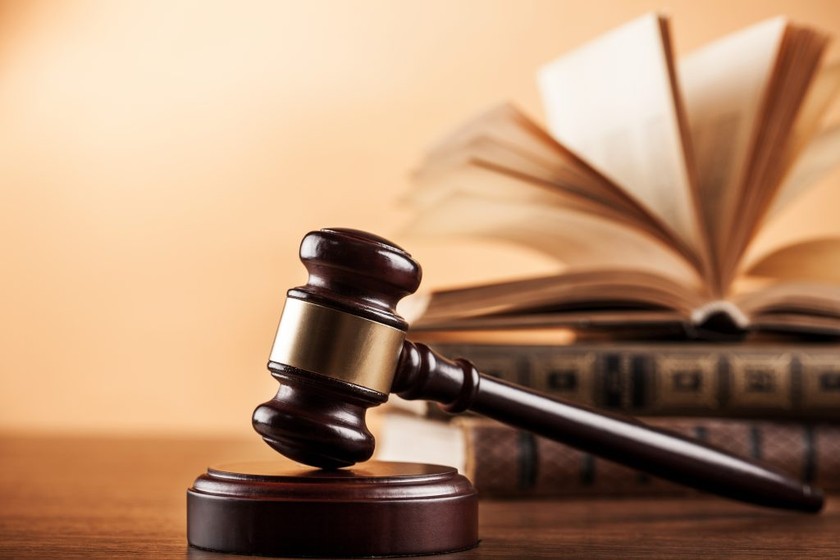Regulations on Courts settling compensation in criminal proceedings in Vietnam
What are the regulations on Courts settling compensation in criminal proceedings in Vietnam? - Thuy Hang (Tay Ninh)

Regulations on Courts settling compensation in criminal proceedings in Vietnam (Internet image)
Regarding this matter, LawNet would like to answer as follows:
1. Regulations on Courts settling compensation in criminal proceedings in Vietnam
Regulations on the Courts settling compensation in criminal proceedings according to Article 36 of the Law on State Compensation Liability 2017 are as follows:
- A first-instance court shall act as a compensation body in any of the following cases:
= It declared that the defendant was guilty but then the appellate court quashes the first-instance judgment, declaring that the defendant is not guilty and terminate the case as the commission of an offence did not occur or the act did not constitute the offence;
= It declared that the defendant was guilty but later the appellate court quashes the first-instance judgment for re-investigation, and then the defendant's investigation and case are terminated as the commission of an offence did not occur or the act did not constitute the offence or the investigation period expired without justifiable grounds to prove that the accused committed any illegal act;
= It declared that the defendant was guilty but then the appellate court quashed the first-instance judgment for retrial, and then declares that the defendant is not guilty as the commission of an offence did not occur or the act did not constitute the offence;
= It declared that the defendant was guilty and the first-instance judgment has taken legal effect but later the court conducting trial according to cassation or reopening procedures quashes that judgment and terminates the case as the commission of an offence did not occur or the act did not constitute the offence;
= It declared that the defendant was guilty and the first-instance judgment has taken legal effect later the court conducting trial according to cassation or reopening procedures quashes that judgment for re-investigation as the commission of an offence did not occur, or the act did not constitute the offence, or the investigation period expired without justifiable grounds to prove that the accused committed any illegal act;
= It declared that the defendant was guilty the first-instance judgment has taken legal effect but later the court conducting trial according to cassation or reopening procedures quashes that judgment for re-trial and then the defendant is declared not guilty as the commission of an offence did not occur or the act did not constitute the offence.
- An appellate court shall act as a compensation body in any of the following cases:
= It declared that the defendant was guilty but later the court conducting trial according to cassation or reopening procedures quashes the appellate judgment and terminates the case as the commission of an offence did not occur or the act did not constitute the offence;
= It declared that the defendant was guilty, but later the court conducting trial according to cassation or reopening procedures quashes the appellate judgment for re-investigation and then the defendant's investigation and case is terminated as the commission of an offence did not occur, or the act did not constitute the offence, or the investigation period expired without justifiable grounds to prove that the accused committed any illegal act;
= It declared that the defendant was guilty, but later the court conducting trial according to cassation or reopening procedures quashes the appellate judgment for re-trial and then the defendant is declared not guilty as the commission of an offence did not occur or the act did not constitute the offence.
- A superior people’s court or a central military court that have jurisdiction to conduct trial according to cassation or reopening procedures shall act as a compensation body in any of the following cases:
= The Council of Judges of the Supreme People’s Court quashes the cassation or reopening ruling of the Superior People’s Court or central military court which declared that the defendant was guilty and terminate the case as the commission of an offence did not occur or the act did not constitute the offence;
= The Council of Judges of the Supreme People’s Court quashes the cassation or reopening ruling of the Superior People’s Court or central military court which declared that the defendant was guilty for re-investigation and then the defendant's investigation and case is terminated as the commission of an offence did not occur, or the act did not constitute the offence, or the investigation period expired without justifiable grounds to prove that the accused committed any illegal act;
= The Council of Judges of the Supreme People’s Court quashes the cassation or reopening ruling of the Superior People’s Court or central military court which declared that the defendant was guilty for re-trial and then the defendant is declared not guilty as the commission of an offence did not occur or the act did not constitute the offence.
- The Supreme People’s Court shall act as a compensation body in any of the following cases:
= The Council of Judges of the Supreme People's Court quashes its cassation or reopening rulings which declared that the defendant was guilty, or quashes a legally effective judgment/decision of the inferior court, and declares that the defendant is guilty as the commission of an offence did not occur or the act did not constitute the offence;
= The Council of Judges of the Supreme People’s Court quashes its cassation or reopening ruling which declared that the defendant was guilty, or quashes a legally effective judgment/decision of the inferior court for re-investigation and then the defendant's investigation and case is terminated as the commission of an offence did not occur, or the act did not constitute the offence, or the investigation period expired without justifiable grounds to prove that the accused committed any illegal act;
= The Council of Judges of the Supreme People's Court quashes its cassation or reopening rulings which declared that the defendant was guilty , or and quashes a legally effective judgment/decision of the inferior court for re-trial, and then the defendant declared not guilty as the commission of an offence did not occur or the act did not constitute the offence.
2. Regulations on the Procuracies settling compensation in criminal proceedings in Vietnam
According to Article 35 of the Law on State Compensation Liability 2017, a procuracy shall act as a compensation body in any of the following cases:
- It ratified an arrest order or decision to extend the custody duration made by competent investigate agency or agency tasked to conduct certain investigative activities but the arrested person or person held in custody did not commit any illegal act;
- It ratified a decision to prosecute the accused or a detention order made by the investigation agency or agency tasked to conduct certain investigative activities or issued a decision to prosecute the accused, a detention order, or a decision to extend the detention duration but then the competent authority confirmed that the offence did not occur, the act did not constitute the offence, or the investigation period expired without justifiable grounds to prove that the accused committed any illegal act, except for the case prescribed in Clause 3 Article 34 of this Law; or it returned the case files for additional investigation, but the investigation body, according to investigation findings, issues a decision on suspension of investigation as the commission of an offence did not occur, the act did not constitute the offence, or the investigation period expired without justifiable grounds to prove that the accused committed any illegal act;
- It issued a decision to prosecute the accused but the first-instance court declared that the defendant was not guilty as he/she did not commit any criminal act or the act did not constitute the offence and the first-instance judgment has taken legal effect;
- The first-instance court returned case files for additional investigation and later the competent agency issued a decision on suspension of the investigation or case as the commission of an offence did not occur, the act did not constitute the offence or the investigation period expired without justifiable grounds to prove that the accused committed any illegal act;
- The first-instance court returned case files for additional investigation and later declared that the defendant is not guilty as he/she did not commit any criminal act or the act did not constitute the offence and the first-instance judgment has taken legal effect;
- The appellate court upheld a first-instance court judgment/ruling declaring that the defendant was not guilty as the commission of an offence did not occur or the act did not constitute the offence
- The appellate court upheld a first-instance court's judgment/ruling declaring that the defendant is not guilty as the commission of an offence did not occur or the act did not constitute the offence and later the court conducting trial according to cassation or reopening procedures still uphold the appellate court's judgment/ruling declaring that the defendant is not guilty as the commission of an offence did not occur or the act did not constitute the offence.
- Key word:
- criminal proceedings
- Vietnam
- Cases of land rent exemption and reduction under the latest regulations in Vietnam
- Economic infrastructure and social infrastructure system in Thu Duc City, Ho Chi Minh City
- Regulations on ordination with foreign elements in religious organizations in Vietnam
- Increase land compensation prices in Vietnam from January 1, 2026
- Determination of land compensation levels for damage during land requisition process in Vietnam
- Who is permitted to purchase social housing according to latest regulations in Vietnam?
-

- Number of deputy directors of departments in Vietnam ...
- 15:04, 05/03/2025
-

- Cases ineligible for pardon in Vietnam in 2025
- 14:43, 05/03/2025
-

- Decree 50/2025 amending Decree 151/2017 on the ...
- 12:00, 05/03/2025
-

- Circular 07/2025 amending Circular 02/2022 on ...
- 11:30, 05/03/2025
-

- Adjustment to the organizational structure of ...
- 10:34, 05/03/2025
-

- Notable new policies of Vietnam effective as of ...
- 16:26, 11/04/2025
-
.Medium.png)
- Notable documents of Vietnam in the previous week ...
- 16:21, 11/04/2025
-
.Medium.png)
- Notable documents of Vietnam in the previous week ...
- 16:11, 02/04/2025
-
.Medium.png)
- Notable new policies of Vietnam to be effective ...
- 16:04, 02/04/2025
-
.Medium.png)
- Notable new policies of Vietnam effective from ...
- 14:51, 21/03/2025

 Article table of contents
Article table of contents
